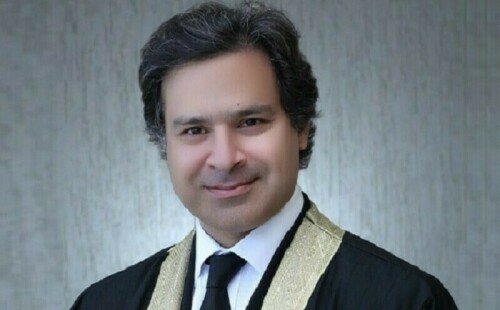ISLAMABAD: Now it will be direct, fast-track peace talks with Taliban militants for which a new government committee will meet the other side next week, Interior Minister Chaudhry Nisar Ali Khan told the National Assembly on Thursday.
But he said an existing policy to target the centres of militant groups opposed to dialogue and engaging in violence would continue.
His announcement, while winding up a two-day debate on a new internal security policy the government much prides on, came hours after Prime Minister Nawaz Sharif held a breakfast meeting in Islamabad with an existing four-member government negotiating committee and three Taliban nominees from outside their ranks.
But the minister, while informing the house of a government decision “to take the dialogue process forward quickly”, did not reveal the composition of what he called a new “government committee” now being constituted, though he said it would include a representative also of the militancy-plagued Khyber Pakhtunkhwa’s provincial government.
There was also no immediate word about whether the existing committee of Taliban nominees, none of whom belongs to any Taliban affiliate, would continue to function, although the interior minister’s reference to “direct talks” indicated that the government would like Taliban’s own members to talk to its delegation.
“In the next few days, our committee will talk to the other side about the principles (under which the talks would be held),” Chaudhry Nisar said, adding that the dialogue under a new format would likely be next week. “As the direct talks move forward, the prime minister will take parliamentary party leaders into confidence and possibly also inform parliament.”
The existing two committees had been meeting since early February, though the process was interrupted by suspension after some deadly militant attacks on security forces and retaliatory military airstrikes on militant hideouts in the Federally Administered Tribal Areas (Fata), only to resume on Wednesday after the banned Tehrik-i-Taliban Pakistan (TTP) announced a ceasefire for a month, which too has was followed by some more deadly attacks claimed by factions other than the umbrella TTP.
Amid raging controversy in the country over whether the government should resume dialogue with the militants despite the new attacks or launch a full-scale military operation against their main bastion in North Waziristan, Chaudhry Nisar said the dialogue was pursued as an option under a mandate from a Sept 9 “all party conference” convened by the prime minister and told the house that a “clear majority of the many (militant) groups” in the field wanted to engage in dialogue with the government and were not inimical to Pakistan though they had “complaints” mainly dating from former president Pervez Musharraf’s regime.
“Dialogue is the way forward, but a dialogue from a position of strength,” the minister said, adding: “This is what we are doing today.”
Though opposition leader Khusrsheed Ahmed Shah was not present in the house at the time, some murmur of protests from some back-bencher of his Pakistan People’s Party (PPP) interrupted the minister as he spoke of the pro-dialogue and possible pro-Pakistan militant groups, and Chaudhry Nisar responded by saying that the previous PPP-led coalition government too had similar assessment of the militant groups.
ALLY MAULANA FROWNS
Before the minister assured the house that positive suggestions made by some opposition lawmakers during the debate, or any coming afterwards, would be incorporated in the new internal security policy, the leader of the government-allied Jamiat Ulema-i-Islam-F, Maulana Fazlur Rehman, frowned at the government’s handling of the dialogue process in which he said the state and the TTP would have “equal status”, though he said the present “national consensus” was only about a peaceful solution and not a military operation.
The maulana, who seems unhappy over a full minister and a minister of state of his party in the federal cabinet not being assigned portfolios yet, seemed to justify the militants’ claimed cause for opposing the United States for invading Afghanistan and for enforcing Sharia in Pakistan, citing the tribal Pashtuns’ traditional opposition to foreign intervention in Afghanstan like that of Britain in the previous century, a perceived Western onslaught against the Islamic world after the disintegration of the Soviet Union, the presumed “clash of civilizations”, Pakistan’s alliance with the United States and failure to implement non-binding recommendations of the Council of Islamic Ideology.
But he said his party’s efforts to persuade the Pakistani Taliban against resorting to militancy did not succeed.
The maulana also opposed the new policy’s aim to reform madressahs and said his party would not accept any changes in madrassah syllabi, which, he said, had already undergone government scrutiny.
And he said that if the government went ahead with this plan, “it would not be the PML-N agenda but the agenda of America and the West”.
However, a PPP member, Imran Zafar Leghari, sharply rejected the JUI-F chief’s allegations against English-medium schools as being damaging to Pakistani or Islamic traditions, while another party lawmaker Shazia Marri too called for madrassah reforms to save the youth from militant indoctrination.














































Dear visitor, the comments section is undergoing an overhaul and will return soon.